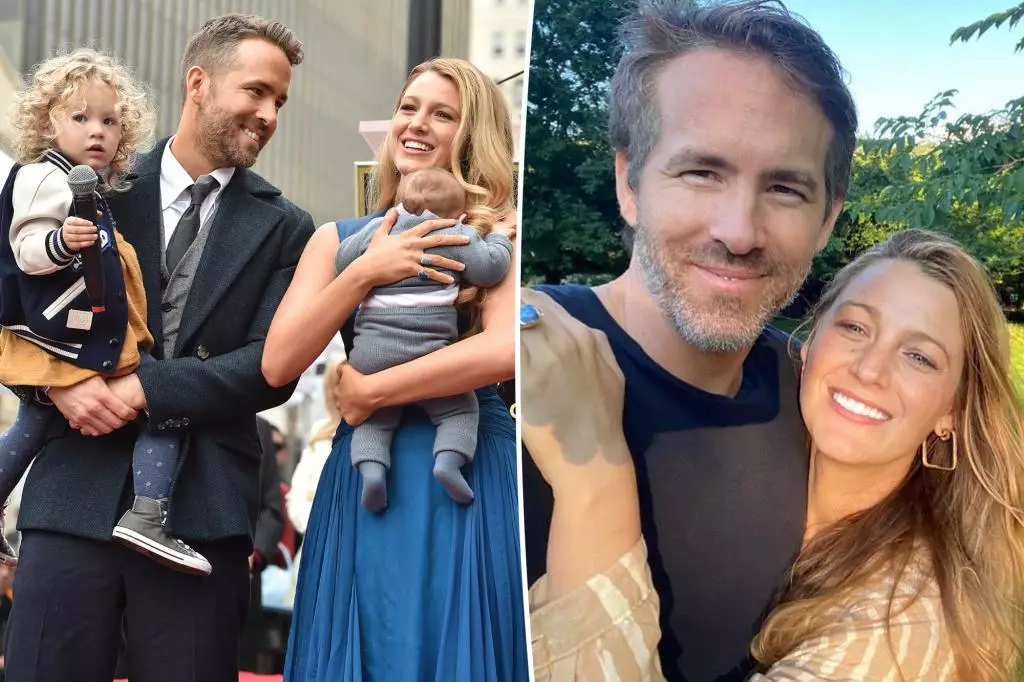Ryan Reynolds and Blake Lively, a power couple in Hollywood, have garnered much attention not only for their successful careers but also for their approach to parenthood. The couple has welcomed four children into the world, and with their high-profile lifestyles, they are keenly aware of the differences in their children’s upbringing compared to their own. As Reynolds navigates the challenges of raising children amid fame and fortune, his reflections provide insight into their unique parenting philosophy.
Embracing Normalcy Amidst Privilege
In an interview with the Hollywood Reporter, Reynolds revealed his aspiration to provide his children with “as normal a life as possible.” Despite their obvious privileges, he emphasizes the importance of maintaining a grounded lifestyle. Growing up in a working-class environment, both Reynolds and Lively understand the value of humility. Reynolds reflected on the stark contrasts between his childhood experiences and those of his children, noting moments where he thought, “I could never have this luxury growing up.” Yet, he has come to recognize that it is unnecessary for his children to carry the weight of his and Lively’s past struggles.
Reynolds’ reflections reveal a deep awareness of privilege and its implications. By consciously deciding not to impose his and Lively’s childhood experiences on their children, he fosters an environment where they can appreciate what they have while being removed from any feelings of guilt associated with their wealth. This delicate balance helps cultivate a sense of entitlement that is tempered by gratitude.
One of Reynolds’ most notable parenting values is the emphasis on empathy. He believes that as long as his children can empathize with others, he and Lively are fulfilling their roles as parents effectively. Empathy serves as a crucial compass in a world often characterized by materialism and self-interest. In today’s society, where children can grow up in insulated environments, the ability to feel for others ensures that they remain connected to the broader human experience.
Reynolds’ commitment to raising children who are aware and sensitive to the needs of others underscores the importance he places on emotional development. He noted that his and Lively’s children already exhibit an understanding of gratitude and empathy. This suggests not only a conscious parenting approach but also a purposeful structuring of daily life that likely includes opportunities for the children to encounter diverse lifestyles and challenges.
The challenges of balancing a demanding career with family responsibilities are also addressed by Reynolds. He spoke candidly about the time gap between the “Deadpool” films, attributing it to an overwhelming work schedule that often takes him away from home. The acknowledgment of feeling “absentee” strikes a poignant chord, revealing the inner turmoil that many parents—particularly those in the spotlight—experience when trying to juggle professional commitments and parenting.
Reynolds’ emotional candor regarding his experiences reflects the struggles of many modern parents who strive for work-life balance in a fast-paced environment. The insights he shares contribute to a larger conversation about the sacrifices that come with success. They also highlight a parental drive to be present during important moments in their children’s lives, signaling a desire to create lasting memories and connections amid the chaos of work.
Ryan Reynolds and Blake Lively’s journey of parenting their four children—James, Inez, Betty, and the newly born Olin—illustrates a dedication to nurturing strong family values in a world defined by privilege. Their focus on maintaining normalcy, fostering empathy, and ensuring active engagement in their children’s lives reflects the evolution of parenting amid changing societal expectations.
Ultimately, their approach embodies the belief that, regardless of circumstances, the essence of parenting lies in emotional connection, shared experiences, and the unwavering commitment to cultivate understanding and compassion in the next generation. This philosophy not only grounds their family but also serves as a reminder of the purpose behind parenting, transcending mere financial wealth and societal status.

